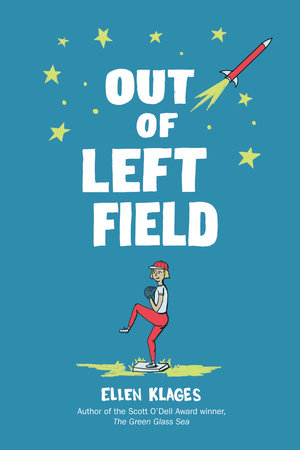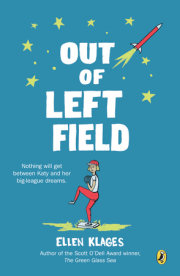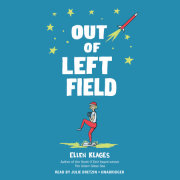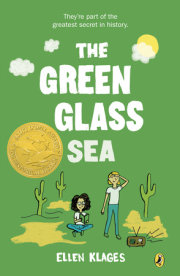“Gor-don! Gor-don!” The crowd goes wild as the Seal’s ace reliever steps out of the dugout and trots to the mound. The bottom of the ninth, two on, two out. Only one batter stands between the Seals and the pennant. “Gor-don! Gor-don” The sound from the stands is deafening. Gordon takes a couple of warm-up tosses, then sizzles one across the plate, and nods to the catcher. It’s time. “Burn it over, Gordon!” “Throw some pepper!” “Get ‘em! Kill da bums!” “Gordon? Hey, Gordon, you okay?”
I looked up from my mitt, the imaginary announcer’s voice fading. My catcher, PeeWee Ishikawa, stared at me. I nodded. “Good to go.”
“You were a million miles away,” he said.
“Just waiting for you to give me the signs.”
"C'mon Gordon! Easy out!" Whiz called from the outfield.
At the plate, a skinny kid named Sticks stood with his bat over one shoulder. Let him wait. I blew a long, slow bubble of gum, scuffed the dirt with one high-topped sneaker, and adjusted the ball, finding the seams, getting the right grip. My side was up by one run, and Mike Bernstein’s mother had already called, "Dinner!" over the back fence, so this was it. If Sticks struck out, my side would win.
The score didn’t matter, much. We played until it got dark — or guys’ moms started yelling — and picked up again the next day. Like one endless game, all summer. We didn’t have regular teams, either. Most days only nine kids showed up, so we matched fingers to pick, then played four on a side with a pinch hitter. The game itself was everything.
“C’mon, Gordon!” PeeWee yelled again.
I stared at Sticks long enough to blow one more bubble before winding up. My best high leg kick, then a hard slider that broke just before it crossed the plate.
Sticks swung and missed.
"Strike one," Andy Duncan said from the bench. With a cast on his broken arm, he couldn't hit or throw for beans, so we all agreed he could be umpire. He was pretty good, too. There'd only been one fight, and even then nobody'd gotten punched.
PeeWee lobbed the ball back. It hit the pocket of my glove with a satisfying
smack. I swiped an arm across the sweat on my forehead before gripping the ball again. A glance over at Mike on first. He wasn't much of a runner. No threat to steal.
"’At's the stuff, Gordon," PeeWee yelled. "Two more, just like that."
“You bet.” I pitched from the stretch, a great throw, a blistering fastball that smacked into PeeWee's glove before Sticks could even move.
"Strike two," Andy called.
PeeWee tossed the ball back. I grinned and turned it around in my glove, finding the familiar raised pattern of the stitches. My special pitch. Sticks couldn’t hit
that. Nobody could. I let out a breath, arched my fingers, and wound up into a smooth release. The ball fluttered toward the plate, fooling Sticks into a big, roundhouse swing that missed by a foot. He went around so hard he lost his balance and landed on his butt in a cloud of reddish dirt.
"Strike three," Andy yelled, and the guys on the field cheered. The boys on the bench groaned and began picking up their gloves and caps and bats.
I stood in the patch of bare dirt that passed for a mound and watched them. It had been a good game, a great finish. Behind me, the setting sun touched the roofs of the houses beyond the outfield fence. I'm five-foot-two, but my shadow stretched from the mound all the way to home plate. That was about how tall I felt, right then.
"Way to go, Gordon!" a couple of the guys yelled.
I grinned, and tipped my cap.
"Nice one," PeeWee said from the backstop. "Can you pitch again tomorrow?"
"Sure." I smiled and thumped my glove. I'd pitch anytime, anywhere.
Behind them, a bell rang, not from the school building, where I‘d be starting fifth grade in a couple of weeks, but from the porch of Andy’s house, a block away.
"Dinner time," PeeWee said. "I oughta go."
"Me too,” I said. “See ya."
"See ya."
One by one, the guys gathered their equipment and got on their bikes or started walking the few blocks home. Most of us had grass stains on our sneakers and pants, from diving for a grounder. Every one of us was dusted with the red dirt of the infield, cap to Keds.
I tucked the ball into my glove, wedged it under one arm, and walked over to the drinking fountain on the south wall of the school. The water arced high and splashed, and late on a hot August afternoon, it was warm as soup, because the pipes had been in full sun. Better than nothing. I hoped there were sodas in the fridge at home.
"Gordon?" A man's voice, behind me.
"Yep." I turned around.
He perched on the fender of a beat-up convertible parked at the curb. He wasn't old, maybe college age, with a stiff blond crew-cut and a blue polo shirt. His arms were tanned, and all muscle. “That last one was something else," he said.
"Thanks. It’s my Sunday pitch.”
"What was it?”
I shrugged. "Doesn't have a name. It's a combo, a knuckler curve. I'm still playing with the mechanics of it, but it's swell when it works."
"I'll say. How'd you do it?"
"Changed the grip a little. Wanna see?"
"Sure." He hitched himself off the fender and waited while I got my glove out again.
"Look here. If you put your fingertips on the stitches this way —" I held the ball up for demonstration "— it disrupts the orientation of the spin axis, which changes the drag coefficient."
"Whoa. What’s your dad, a rocket scientist?"
"Yeah, he is." I was pretty sure that was what he did. I’d only met him twice.
“Go figure.” The man shook his head. “Look, kid. I've been playing ball since I was in rompers, but — what the heck did all that mean?"
"It means the ball doesn’t have much spin, and so it zigs when you think it's gonna zag." I grinned. "And so far, nobody can hit it."
The man whistled. "Well, you talk like an egghead, but you pitch like a champ. How'd you like to join the Little League? I'm one of the coaches, and we could use an arm like yours."
"Little League? You betcha!" Zowie. That was the real deal — official uniforms, a regulation diamond. It was the big leagues, for a kid. "When can I start?"
"Not so fast. First things first. How old are you?"
"Ten,” I said, then gave him the whole truth. “Middle of next month."
"Good enough. The league's for boys ten to twelve. This season ends Saturday, but we‘re holding tryouts for spring teams in a couple of weeks. I think you’ll fit right in.“
“Sure.”
Maybe. I tugged on the brim of my cap, tightening it down in case my eyes looked worried. I don't have much of a poker face. "That sounds swell," I said, and flicked away a sudden trickle of sweat.
"Something wrong?"
No poker face at all. "Nope,” I said quickly. “Just thinking about the Seals. I sure hope they win the pennant this year." That wasn’t what I was thinking, but how would he know?
“Going out with a bang, that’d be good,” he said, then pointed to my jersey. “You gonna retire that when they’re gone?”
“Gone? Whad’ya mean, gone?”
He lifted an eyebrow. “You haven’t seen today’s paper?”
“Nope. My mom took it to work before I got up.”
“Ah. So you don’t know.” He shook his head and reached onto the front seat of his convertible. “Take a gander, kid. It’s gonna be a brand new ball game in Frisco next year. We’re in the majors! First team west of the Mississippi.”
He held up that morning’s
San Francisco Chronicle. Its huge black headline read:
SAY HEY! THEY’RE S.F. GIANTS NOW “How about
that, kid?” The man sounded excited.
“I don’t get it,” I said. “The Seals are a
Red Sox farm team. Everyone says they’re going to be in the American League when the majors expand out here.”
“That’s what I heard, too. But baseball is a business, and it looks like the owners and the politicians have been wheeling and dealing, ‘cause the Giants are leaving New York.” He scratched his cheek. “That means the Seals stay bush league, if they stay at all. Can’t see why we’d need
two teams.”
No! The Seals were
my team. They’d played for San Francisco before my
mom was born. What would happen to Asparamonte and Pearson and Pumpsie Green? I felt my eyes sting, and wiped my face like I was sweaty, to cover. “Look, mister, I need to get home and wash up before dinner.”
"I'll bet you're hungry. You played a hard game." He pointed to his car. "Let me get some info from you, and I'll have you on your way in a jiffy.” He leaned over and picked up a clipboard from the back seat, then turned around and clicked his ballpoint pen. "They call you Gordon. That your first or last name, son?"
"Last. First is Kay—"
Oh crap. Fortunately, I stopped myself in time and thought fast, and continued without
too much hesitation. "Casey. Casey Gordon."
He laughed. "Now, there's a good baseball moniker."
It was. And it really was my name, shortened a little. My initials are K. C. I wasn't about to tell him they stood for Kathleen Curie. I was pretty sure he thought I was a boy.
In my dirty jersey and sneakers, I looked like the rest of the guys. Which was fine with me. I'd get to pitch first and answer questions later. It had worked here at the vacant lot. Once the boys saw how I threw, most of them got over the whole girl thing.
"Address?"
I stopped for a sec, because I’d gotten Mom’s lecture — more than once — about not talking to strangers. “Can I see that?”
He showed me the clipboard.
Little League Baseball it said right at the top, with a logo in two colors. That would be hard to fake. So I told him where I lived, and my birth date, September 15, 1947, and my phone number.
“Can I get one for my catcher?” I asked. PeeWee would be over the moon.
"Sure," he said. “He played a fine game, too.” He handed me another form and clicked his pen shut. "Tryouts are Friday, September 13th, from four until six. Instructions are all there.” He pointed to the form, then pulled it out of his clipboard and handed me the carbon copy. “Maybe your Dad can get off work and come watch.”
I shook my head. "Nope. He lives in Alabama. My folks split up when I was a baby."
"Oh, sorry to hear that." He put his hands in his pockets, like guys do when they don’t know what else to say. "Your brother must be a pretty good pitcher, then. He sure taught you good. Where’s he play — Berkeley High? College?"
I sighed. I couldn't help it. "I don't have a brother, either."
"Hold on. You're telling me you figured out how to throw a curving knuckler all by yourself?”
"Oh, heck no.” I looked up at him. “I learned that from my sisters."
I watched his mouth hang open like he was going to swallow flies. I bit my cheeks so I wouldn’t laugh. Not then. I waited until I was a half block away before I started to chuckle.
Copyright © 2018 by Ellen Klages. All rights reserved. No part of this excerpt may be reproduced or reprinted without permission in writing from the publisher.







